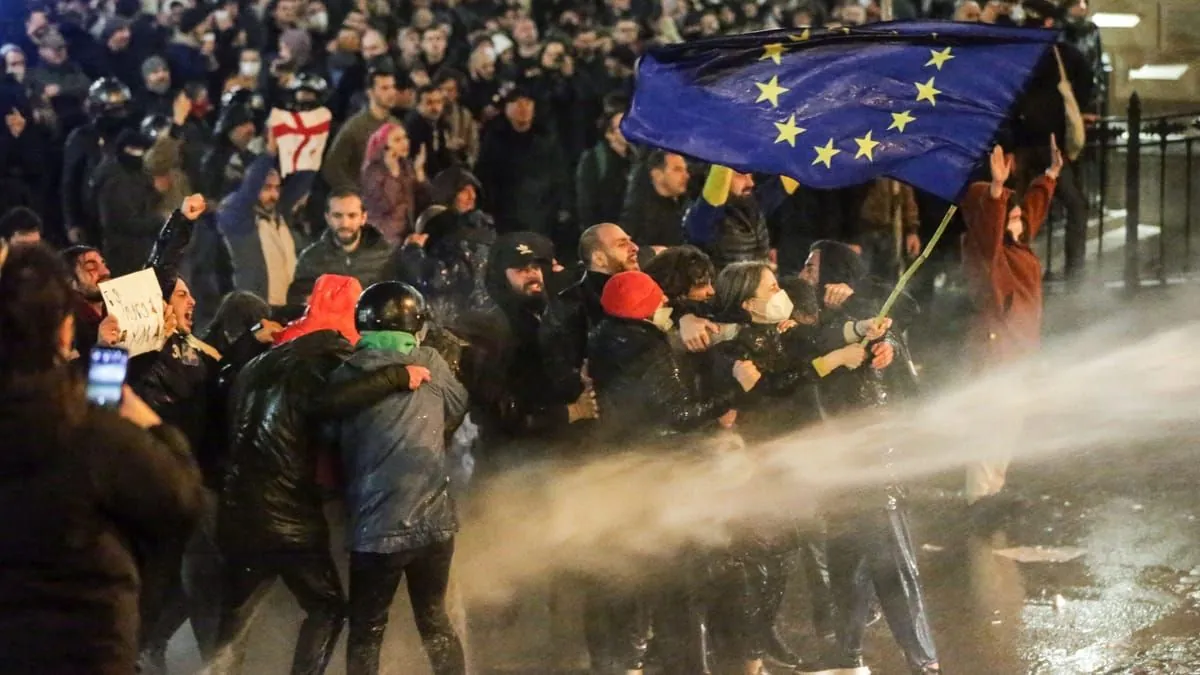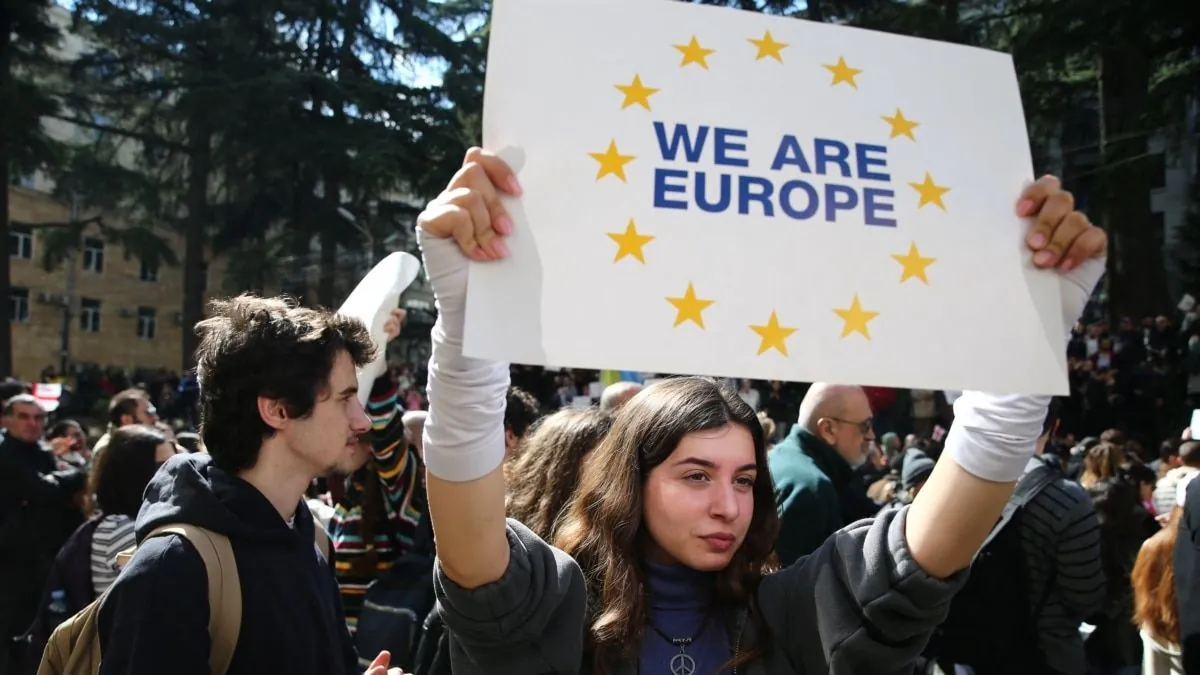Georgia's Civil Society Defies Controversial 'Foreign Agent' Law
Georgia's new "foreign agent" law faces widespread opposition from media and NGOs. Critics warn of Russian influence as the country approaches crucial elections, testing its democratic aspirations.

In the heart of Tbilisi, Levan Sutidze, editor-in-chief of Tabula, voices his opposition to the Georgian government's recent actions. His concerns reflect a growing unease among independent journalists and civil society organizations in Georgia, a country of 3.7 million people nestled in the Caucasus region.
The source of this disquiet is the "Transparency of Foreign Influence" Law, passed in May 2024. This legislation requires organizations receiving over 20% of their funding from abroad to register as "representing foreign interests." Critics argue that this law, reminiscent of similar Russian legislation, threatens Georgia's democratic foundations and Western aspirations.
Georgia, which gained independence from the Soviet Union in 1991, has been on a path towards European integration for decades. The country became an EU Eastern Partnership member in 2009 and has been seeking NATO membership since 2002. However, recent developments have raised concerns about the country's democratic trajectory.
Levan Ramishvili, a professor at Free University of Tbilisi, draws parallels between the Georgian government's actions and those of Russian President Vladimir Putin. He suggests that both have misinterpreted Western responses to their actions, leading to bolder moves against democratic norms.

The law's introduction sparked massive protests in spring 2024, with up to 200,000 people, many from Generation Z, taking to the streets. These demonstrations reflected fears of an authoritarian turn and potential jeopardy to Georgia's EU and NATO aspirations, both of which enjoy widespread public support.
"This is a direct war against Russia. This is the final battle—if we don't fight now, we might lose our sovereignty next year, or if we retain it, it will be purely symbolic. We must defend it all the way. If not now, when?"
The government's response to the protests was harsh, with riot police using tear gas and rubber bullets. Reports of violence against activists and journalists emerged, reminiscent of the brief war Georgia fought with Russia in 2008 over South Ossetia.
International reaction was swift. The United States suspended $95 million in aid and imposed visa bans on over 90 Georgian officials. The European Union, while more restrained, froze some assistance. These actions reflect the importance of Georgia's democratic development to its Western partners.
Despite the pressure, the Georgian government proceeded with the law. Organizations had until September 2, 2024, to register under the new system. However, many, including Tabula, refused to comply. Only about 1% of Georgia's 30,000 NGOs have registered, with most prominent organizations either relocating their financial operations or refusing to act altogether.
Tamar Kintsurashvili, head of the Media Development Fund, emphasizes the law's repressive nature. Her organization, which works on Russian disinformation efforts in Georgia, has faced vandalism and threats.
A group of 122 organizations has filed a lawsuit in the Georgian Constitutional Court to overturn the law. Giorgi Davituri, who presented the case, notes that the strategy relies on precedents from Russia and Hungary, highlighting concerns about the judiciary's independence in Georgia.
As the country approaches parliamentary elections in October 2024, concerns grow about Georgia's future direction. The ruling Georgian Dream party's campaign, featuring images of war-torn Ukrainian cities juxtaposed with peaceful Georgian landscapes, has drawn criticism for manipulating fears.
Georgia, known for its rich history dating back to the 5th century, unique alphabet, and status as one of the world's oldest wine-producing regions, now finds itself at a crossroads. The outcome of this struggle between the government and civil society could determine whether Georgia continues its path towards European integration or drifts closer to Russian influence.


































